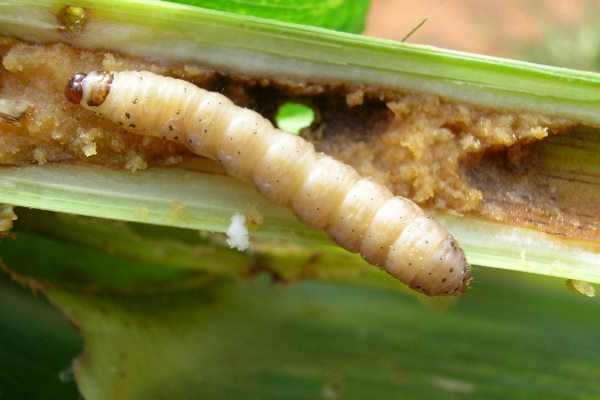Efficacy of Bt-(Cry1Ab Cry2Ab Cry1Fa) maize against Spodoptera frugiperda and other lepidopteran migratory pests in tropical Asia
Shuang Chen, Xianming Yang, Guodong Kang, Haitao Li, Cheng Song, Liping Qi, Na Li, Zhenwei Tian, Dazhong Liu, Kongming Wu
Pest Management Science; 09 November 2025; https://doi.org/10.1002/ps.70365

Abstract
BACKGROUND
The invasive fall armyworm Spodoptera frugiperda and other lepidopteran migratory pests significantly threaten maize production in tropical Asia, a key year-round breeding region and source of spring or summer migrants across the broader Asian region. The strategic deployment of genetically modified maize expressing pyramided Bacillus thuringiensis (Bt) toxins offers a promising approach for managing multiple pests and delaying resistance evolution in this region. This study evaluated the insecticidal efficacy of Bt maize (LP026-2 event, Cry1Ab + Cry2Ab + Cry1Fa) against six major lepidopteran pests: S. frugiperda, Mythimna separata, Spodoptera exigua, Spodoptera litura, Helicoverpa armigera, and Ostrinia furnacalis.
RESULTS
Total Bt protein levels in Bt-(Cry1Ab + Cry2Ab + Cry1Fa) maize followed the order: leaf > silk > kernel, with Cry2Ab as the dominant toxin, comprising 84.49% (188.75 μg g−1) in leaves and 64.12% (16.12 μg g−1) in kernels. Bioassays demonstrated its high efficacy, with corrected mortality >90% against all six pests in leaf and kernel assays after 5 days. Pest susceptibility ranked as H. armigera > S. frugiperda > O. furnacalis > M. separata > S. exigua > S. litura, with efficacy highest in leaf, followed by kernel and silk tissues (silk mortality 69.15–98.94%). Field trials further validated the efficacy of Bt maize, showing significant reduction in larval densities, plant damage, along with 4.52–25.41% yield increase over the non-Bt maize.
CONCLUSION
These findings demonstrate that Bt-(Cry1Ab + Cry2Ab + Cry1Fa) maize provides effective multi-pest control and yield benefits, supporting its integration into the migratory pest management strategies for tropical maize production systems. © 2025 Society of Chemical Industry.
See: https://scijournals.onlinelibrary.wiley.com/doi/10.1002/ps.7036
Views: 5


